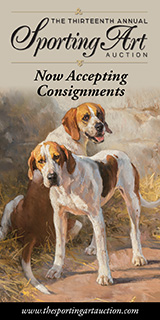ehm
Virginia Horses Confirmed Positive for EHM
A horse in Albemarle County, northwest of Charlottesville, Virginia, that displayed neurologic abnormality was confirmed positive for Equine Herpesvirus Myeloencephalopathy (EHM) on February 5, 2015. The boarding stable at which the affected horse is located, along with fourteen other horses, has been placed under quarantine. No horses may leave or enter the premises until the quarantine is lifted. EHM is a neurological form of Equine Herpesvirus-1 (EHV-1), a highly infectious disease that generally affects the respiratory system. Although the condition of the horse in Albemarle County has been improving, a horse in Loudoun County was tested positive for the neurolopathogenic strain of EHV-1 on February 12. That horse has been isolated at the Marion duPont Scott Equine Medical Center, and is also recovering. The farm where the horse was stabled is also under quarantine. Thirty-three other horses at that farm have shown no signs of the disease. Updates are published periodically by the Virginia Department of Agriculture and Consumer Services. Posted February 20, 2015
Read More
Multiple Equine Herpes Cases Break Out in Minnesota
Following news of a confirmed case of Equine Herpesvirus Myeloencephalopathy (EHM) in Virginia, we learn that veterinarians in Minnesota have declared a voluntary lockdown following an outbreak involving nine horses in that state and in western Wisconsin. EHM is neurological disease in horses caused by Equine Herpesvirus-1 (EHV-1). The veterinarians recommended that no horses be moved or intermingled in the state for at least two weeks after the last positive case of the virus is confirmed. The timing is such that three hundred stalls likely remained empty at the annual Minnesota Horse Expo this year. Symptoms of EHM start with runny nose and low-grade fever and progress to neurological problems. If not treated, the horse may lose the ability to walk in just a week. Of the nine cases in Minnesota and environs, three horses required euthanization as of mid-April. The Virginia Department of Animal and Consumer Services recommends the following biosecurity measures for all horses that will come into contact with other horses at shows, trail rides, meets and other events: Minimize direct contact between assembled horses whenever possible.1. Clean and disinfect equipment, feed, tack, stalls and other surfaces that are shared between horses.2. Isolate and closely monitor horses that are returning from a show, trail ride or competition for a minimum of 14 days.3. Clean and disinfect caretakers’ hands, clothing, shoes and vehicles that may be contaminated by other horses or equipment.4. Consult with your veterinarian about a vaccination schedule for diseases of concern such as Eastern Equine Encephalitis, West Nile Virus, Equine Rhinopneumonitis and rabies. Your equine veterinarian can also provide you with biosecurity recommendations that are specifically tailored to your horses and your facility. Horse exhibitors and event goers can monitor their horses for early signs of infection by taking their temperature twice a day while at shows and reporting an elevated temperature to their veterinarian. Click for more details concerning the Minnesota outbreak. Posted May 6, 2014 http://www.myfoxtwincities.com/story/25236679/horses-banned-from-expo-due-to-contagious-virus
Read More

















